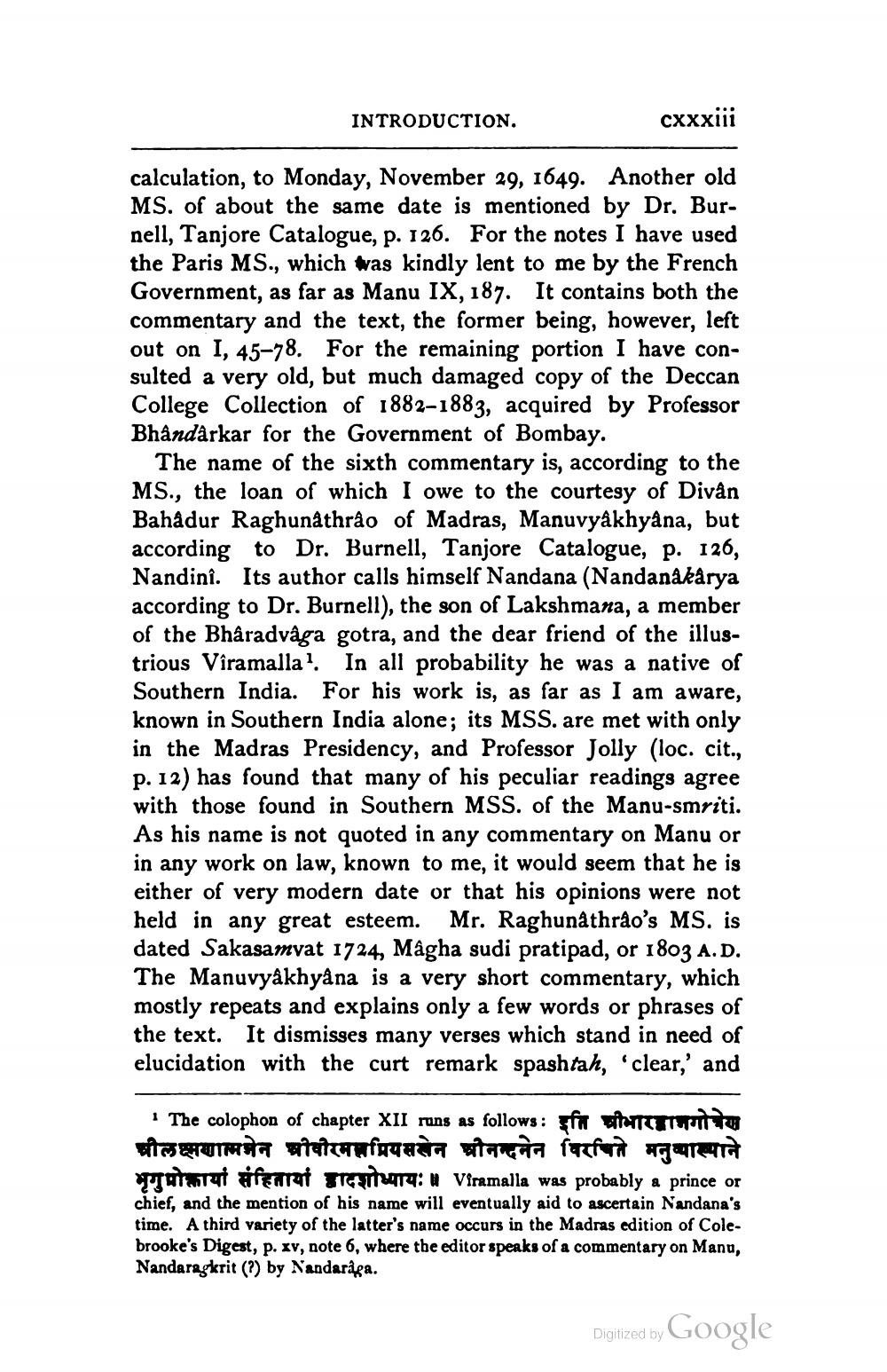________________
INTRODUCTION.
cxxxiii
calculation, to Monday, November 29, 1649. Another old MS. of about the same date is mentioned by Dr. Burnell, Tanjore Catalogue, p. 126. For the notes I have used the Paris MS., which was kindly lent to me by the French Government, as far as Manu IX, 187. It contains both the commentary and the text, the former being, however, left out on I, 45–78. For the remaining portion I have consulted a very old, but much damaged copy of the Deccan College Collection of 1882-1883, acquired by Professor Bhandarkar for the Government of Bombay.
The name of the sixth commentary is, according to the MS., the loan of which I owe to the courtesy of Divån Bahadur Raghunathrão of Madras, Manuvyakhyana, but according to Dr. Burnell, Tanjore Catalogue, p. 126, Nandinî. Its author calls himself Nandana (Nandanåkarya according to Dr. Burnell), the son of Lakshmana, a member of the Bharadvâga gotra, and the dear friend of the illustrious Vîramalla?. In all probability he was a native of Southern India. For his work is, as far as I am aware, known in Southern India alone; its MSS. are met with only in the Madras Presidency, and Professor Jolly (loc. cit., p. 12) has found that many of his peculiar readings agree with those found in Southern MSS. of the Manu-smriti. As his name is not quoted in any commentary on Manu or in any work on law, known to me, it would seem that he is either of very modern date or that his opinions were not held in any great esteem. Mr. Raghunathrao's MS. is dated Sakasamvat 1724, Magha sudi pratipad, or 1803 A.D. The Manuvyakhyana is a very short commentary, which mostly repeats and explains only a few words or phrases of the text. It dismisses many verses which stand in need of elucidation with the curt remark spashtah,"clear,' and
The colophon of chapter XII runs as follows: fo what written श्रीलक्ष्मणात्ममेन श्रीवीरमप्रियसखेन श्रीनन्दनेन विरचिते मनुष्याल्याने भगमोकायां संहितायां द्वादशोध्यायः॥ Viramalla was probably a prince or chief, and the mention of his name will eventually aid to ascertain Nandana's time. A third variety of the latter's name occurs in the Madras edition of Colebrooke's Digest, p. xv, note 6, where the editor speaks of a commentary on Manu, Nandaragkrit (?) by Nandaråga.
Digitized by Google




